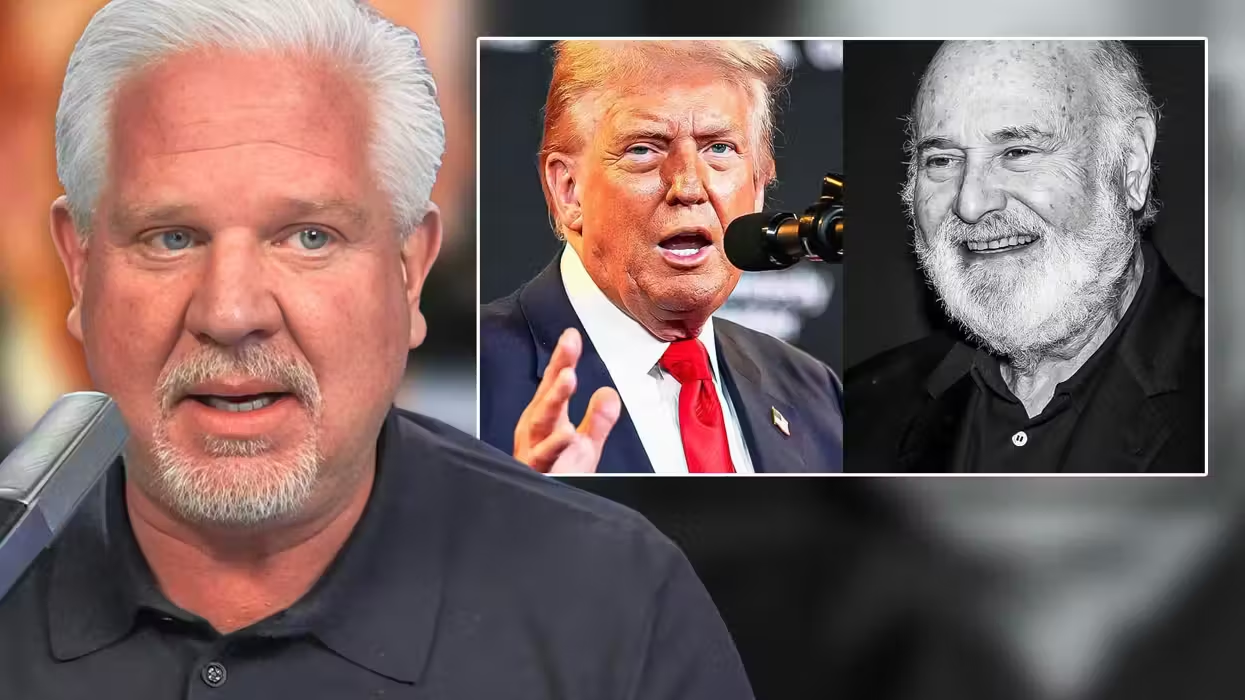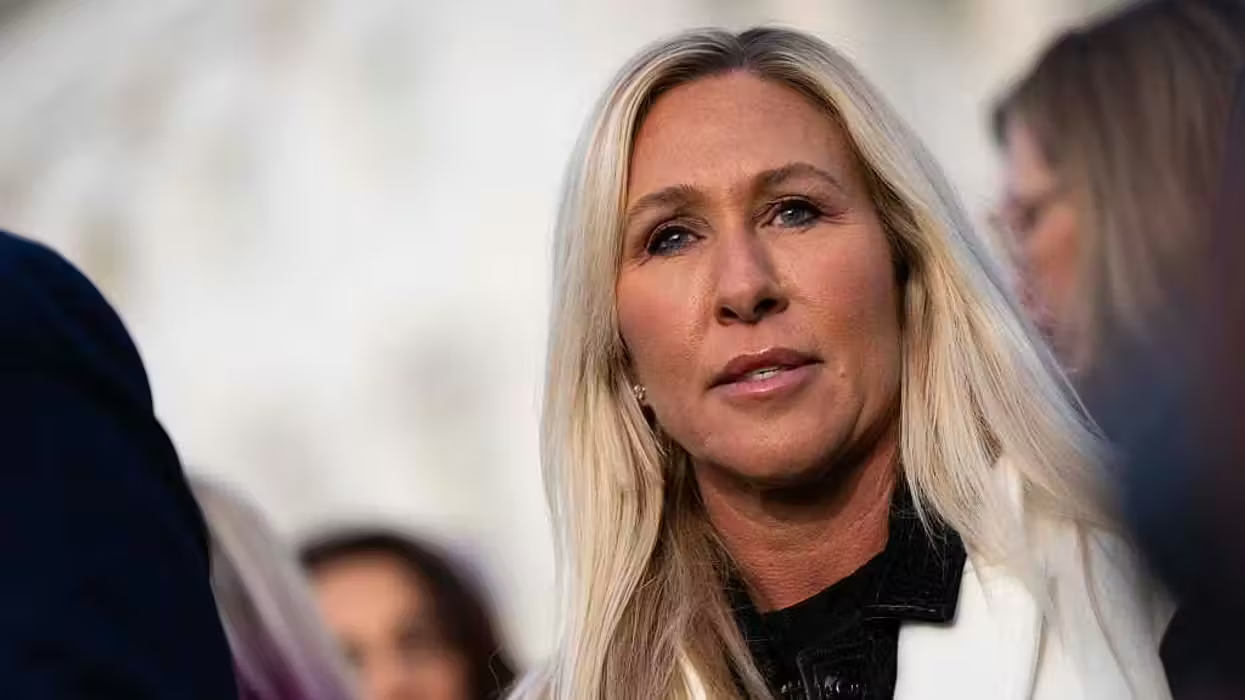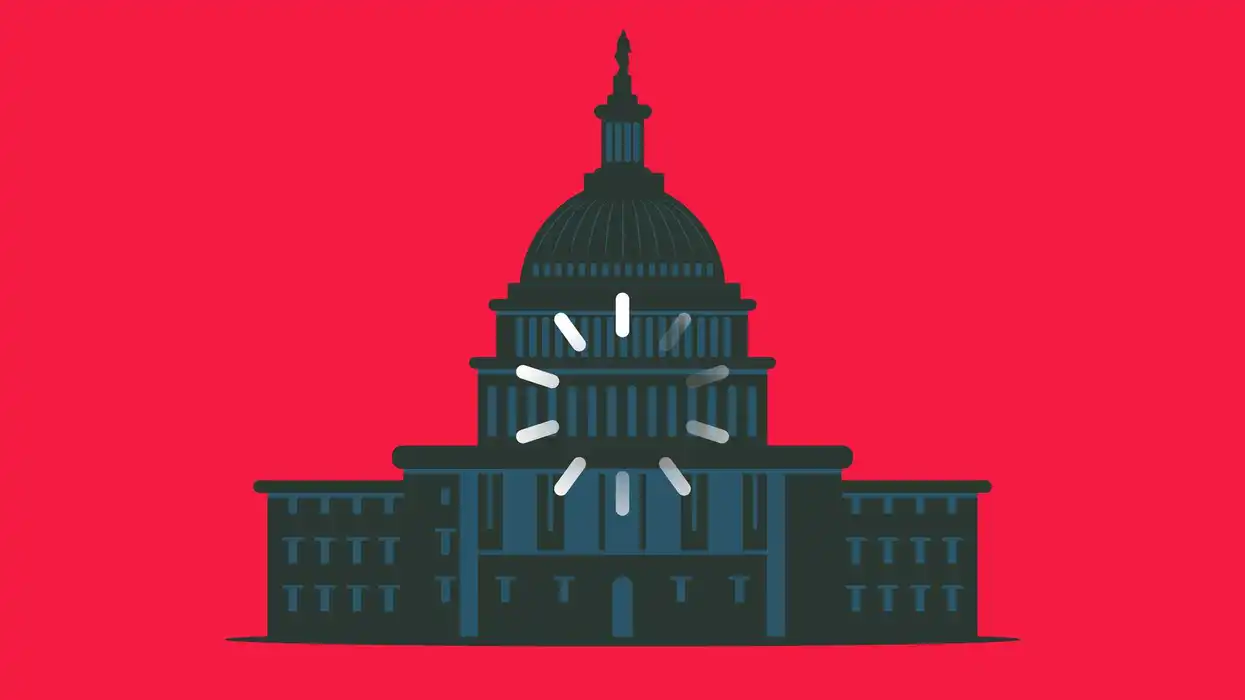
© 2025 Blaze Media LLC. All rights reserved.
"China's growth is probably not sustainable."
Goldman Sachs Group has reportedly provided its hedge-fund clients with a pamphlet that instructs them on how to profit from the financial crisis in Europe.
According to a recent Wall Street Journal report:
“In a 54-page report sent to hundreds of Goldman's institutional clients dated Aug. 16, Alan Brazil—a Goldman strategist who sits on the firm's trading desk—argued that as much as $1 trillion in capital may be needed to shore up European banks.”
Moreover, the pamphlet claims that “small businesses in the U.S., a past driver of job production, are still languishing [emphasis added].”
According to Business Insider, Alan Brazil recommends a couple of strategies to help "play" the European disaster:
First: “Buy a six-month put option on the Euro versus the Swiss Franc, thus betting the Euro will drop against the Franc (the Franc being the currency that an official Goldman report recently referred to as the most overvalued in the world).”
Second: “Buy a five-year credit default swap on an index of European corporate debt—the iTraxx 9 [the brand name for the family of credit default swap index products that form a large sector of the overall credit derivative market and cover regions of Europe, Australia, Japan and non-Japan Asia]. This is a bet that some of these companies will default, and your insurance policy, the CDS, will pay off.”
Shrewd? Yes. Surprising? Not exactly.
Goldman Sachs has repeatedly demonstrated a quality of character that has been latitudinarian, to say the least, in regards to ethical business behavior. To put it plainly, they have a long and faithful record of fiscally perspicacious, albeit ethically questionable, business practices.
For instance, readers may remember the “California bonds” scandal where the Los Angeles Times reported that Goldman Sachs, which earned $25 million from underwriting California bonds, had advised other clients to short (i.e. shortsell) those bonds.
Then there was, and continues to be, the ever-present “personnel 'revolving-door' with U.S. government.” Back in 2008, when Goldman Sachs started receiving criticism in earnest, it became apparent that there was a “revolving door relationship” between Sachs and the Feds. Goldman Sachs employees and consultants would be moved out of the financial group and "somehow" end up in high-level U.S. Government positions. Naturally, many critics objected to this seemingly crony relationship because of the obvious conflict of interest.
These were no minor players who went on to become powerful and influential U.S. government officials. For example, former Treasury Secretary Paulson was a former CEO of Goldman Sachs. Former Goldman Sachs lobbyist Mark Patterson became chief of staff to Treasury Secretary Timothy Geithner (despite President Barack Obama's campaign promise that he would limit the influence of lobbyists in his administration).
And strengthening the claim of a nefarious relationship between the two, the Washington Examiner pointed out back in February 2011, that Goldman Sachs was "the company from which Obama raised the most money in 2008" and that its "CEO Lloyd Blankfein has visited the White House 10 times."
We could go on and mention the Goldman Sachs insider trading cases where, in 1986, Goldman employee David Brown was convicted of passing inside information to Ivan Boesky, the infamous Wall Street arbitrageur, on a takeover deal. Robert Freeman, who was a senior Partner, the Head of Risk Arbitrage and a protégé of Robert Rubin (a member of the Board and Co-Chairman from 1990-1992) was also convicted of insider trading, for his own account and for the firm's account.
And let us not forget their involvement with Greece and European sovereign debt crisis. Goldman Sachs allegedly helped the Greek government mask the true facts concerning its national debt between the years 1998 and 2009. In September 2009, Goldman Sachs, among others, created a special credit default swap (CDS) index to cover of high risk of Greece's national debt. As result of this collaboration, the interest-rates of Greek national bonds have soared to a very high level and has led the Greek economy very close to the brink of bankruptcy.
These are only a few examples in the long, illustrious history of Goldman Sachs. Knowing full well their common modus operandi, this recent cash-in-on-Europe pamphlet does not come as a surprise at all.
In fact, it is moderately tame compared to what they are capable of. Maybe they are turning a corner.
Want to leave a tip?
We answer to you. Help keep our content free of advertisers and big tech censorship by leaving a tip today.
Want to join the conversation?
Already a subscriber?
more stories
Sign up for the Blaze newsletter
By signing up, you agree to our Privacy Policy and Terms of Use, and agree to receive content that may sometimes include advertisements. You may opt out at any time.
Related Content
© 2025 Blaze Media LLC. All rights reserved.
Get the stories that matter most delivered directly to your inbox.
By signing up, you agree to our Privacy Policy and Terms of Use, and agree to receive content that may sometimes include advertisements. You may opt out at any time.






